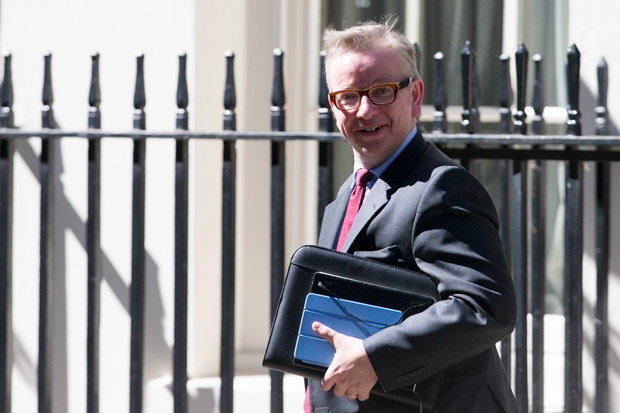During his time as Education Secretary, Michael Gove would often have occasion to quote a passage of Machiavelli: ‘There is nothing more difficult, more doubtful of success or more dangerous than to initiate a new order of things. For the reformer has enemies in all those who profit by the old order, and only lukewarm defenders in all those who would profit by the new order.’
In the end, it seems, Gove’s enemies triumphed. They shouted more loudly than those who benefited from the new schools, and persuaded the Prime Minister that his Education Secretary was losing an argument — so he should walk the plank. The teachers’ unions succeeded in posing as the voice of teachers, even though only a fraction of teachers voted for the strikes earlier this month. Opinion polls that sample the views of non-parents were another factor in Gove’s removal. As was the hostility of Nick Clegg, the Deputy Prime Minister.
It was never a fair fight because those who stand to benefit from Gove’s reforms are those with the least voice in society. His vision was truly a radical one — that the poor should have the same choice in education that today only the rich can afford. The free schools he introduced were most needed in council estates where sink schools were the norm. Gove was never going for an easy political hit; his was a long-term battle to improve the life chances of the poorest. But the poor tend not to interest political strategists, because they tend not to vote.
Gove had been planning school reform years before he took the job. Still, he perhaps underestimated how noisy his detractors could be and the extent to which their opposition could affect the Prime Minister.








Comments
Join the debate for just £1 a month
Be part of the conversation with other Spectator readers by getting your first three months for £3.
UNLOCK ACCESS Just £1 a monthAlready a subscriber? Log in